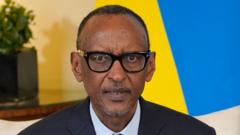In Belgium, where French, Dutch, and German coexist as official languages, navigating daily communications can occasionally lead to disputes. Such was the case on a train last year, where the greeting of a train attendant, Ilyass Alba, ignited tensions. The attendant exchanged pleasantries, using both "goeiemorgen" (Dutch) and "bonjour" (French) as he greeted commuters during morning rush hour in Leuven, located in the Dutch-speaking region of Flanders.
Although many passengers paid little mind to this bilingual salutation, one Dutch-speaking individual took umbrage. He promptly confronted Mr. Alba, arguing that addressing passengers in French was inappropriate while still in Flanders. The ensuing exchange escalated, compelling Mr. Alba to seek support from those nearby—all in French. This prompted the Dutch speaker to file a formal complaint with the Permanent Commission for Linguistic Control in Belgium.
After five months of deliberation, the commission rendered its decision earlier this month, backing the complainant's stance. Their guidance, as covered by the Dutch-language newspaper Nieuwsblad, emphasized that train attendants must greet passengers in Dutch unless otherwise informed of their preferred language. The commission underscored that such compliance is essential once an attendant discerns a traveler's language preference.
This incident reveals the delicate balance surrounding linguistic rights in Belgium, where language can be a deeply rooted component of identity. As Belgium continues to grapple with its multilingual nature, instances like these expose the complexities of communication in everyday life.






















